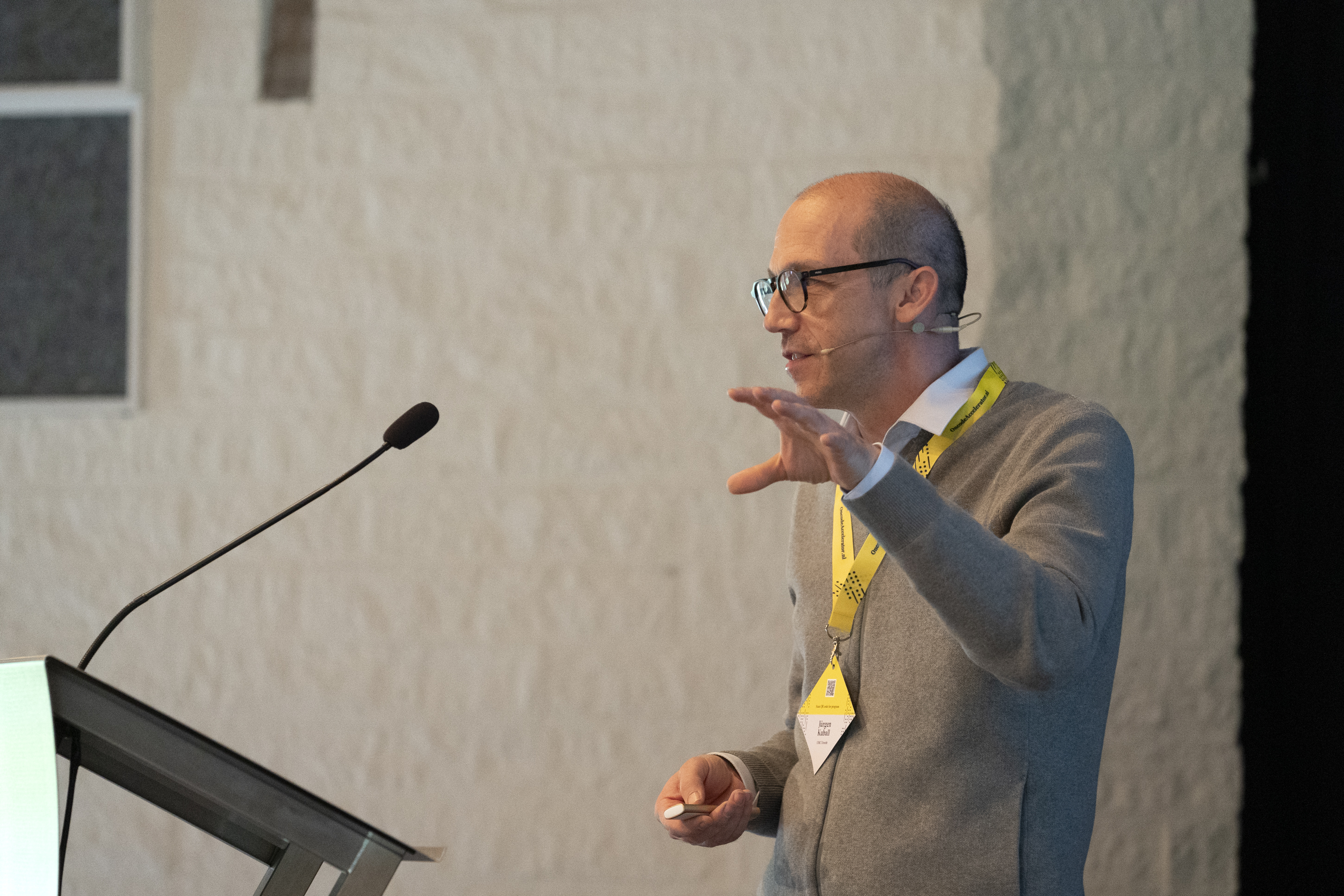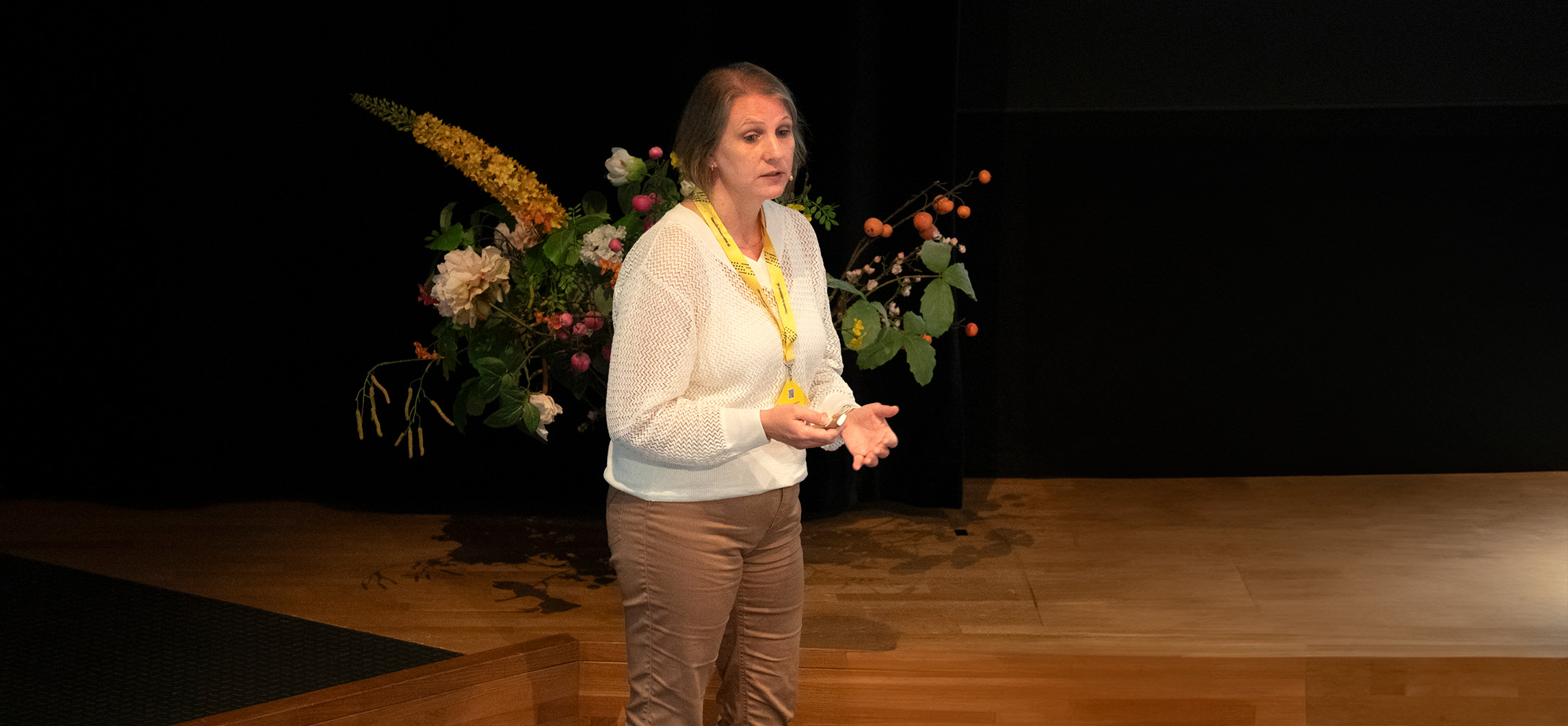Dual Interview
09
Dual Interview with Jurgen
Kuball and Inge Jedema
In perfect position to bring the next generation of cell and gene therapy to patients
Jurgen Kuball and Inge Jedema talk about the role and added value of the Cell & Gene Therapy Workstream in Oncode Accelerator. ‘We want to accelerate product development.’
As one of the four Workstreams in the Oncode Accelerator, the Cell & Gene Therapy (CGT) Workstream focuses on advancing the promising field of research known from CAR T and TIL therapies. Jurgen Kuball, chair of the CGT Workstream management team and head of the Department of Hematology at UMCU, along with co-chair Inge Jedema, head of Translational Cellular Therapy at NKI/AvL, consider this ‘a great responsibility.’
‘There are exciting opportunities for cell and gene therapy in the Netherlands in the coming decades,’ Kuball explains. ‘We have played a leading international role in our field in recent years. Our Workstream partner, EBMT, has registered over 9,000 patients in Europe receiving CAR T-cell therapy for hematological tumors as routine treatment. However, the actual numbers are higher, as registries
do not always capture all patients.’
There are exciting opportunities for cell and gene therapy in the Netherlands in the coming decades.
By Jurgen Kuball
Before delving into the potential of CAR T and TIL therapies, what makes your Workstream so exciting? ‘Our team members have pioneered cellular therapies from the laboratory to the clinic and established preclinical and clinical European CAR-T networks,’ says Kuball. ‘We have unique expertise in CAR T design, manufacturing, valorization, treatment experience, and data structure. This technological advantage positions us well to bring the next generation of CAR T to patients. Funding from Oncode Accelerator offers us a unique opportunity to consolidate our national and international position and increase access to these innovative therapies.’

CAR T therapy, a form of immunotherapy, is one of the significant success stories in novel cancer treatments. ‘We extract the patient’s T cells from their blood, genetically modify them in the lab to recognize tumor cells via a chimeric antigen receptor (CAR, ed.), and then multiply and reinfuse them into the patient to attack tumor cells,’ Jedema explains. ‘The therapy currently works well, but only for a subset of patients. Increasing this success rate is a major challenge.’ Currently, it mainly works for blood cancers, targeting tumor cells in the blood or lymph nodes. ‘However, we aim to make it effective for solid tumors as well’, Kuball states. ‘This is a challenge for our Workstream: we want to accelerate product development.’
We are literally building the infrastructure of Oncode Accelerator for cell- and gene therapy product development.
By Inge Jedema
Recently, Tumor-Infiltrating Lymphocytes (TIL) therapy has gained attention as a promising cell therapy for solid tumors. TIL therapy involves isolating T-cells from the tumor, multiplying and reinvigorating them outside the body, and reinfusing them into the patient. ‘The NKI has made significant progress with this method against metastatic melanoma and non-small cell lung carcinoma,’ says Jedema. Oncode Accelerator’s CGT Workstream will focus on CAR T and TIL therapies, and also develop T cell receptor (TCR)-engineered products. Although these therapies are relatively new, they hold great potential. However, the complex techniques to generate CAR T or TIL, and the biological challenges to make them effective for various cancer types, present many challenges. This focus area is ideal for an initiative like Oncode Accelerator, argue Jedema and Kuball.
Beyond the scientific content, what sets the CGT Workstream apart from the other Workstreams? Kuball highlights their individualized strategies, which are close to clinical application. ‘Academic and industrial partnerships have been successful, and we aim to build on this. The basic technology and infrastructure of CAR T and TIL are established, and we are now positioned to quickly move into clinical applications and learn from failures to modify the therapies in the laboratory.’
Kuball explains their use of organoid models and artificial intelligence to predict the success of engineered immune cells and design next-generation cells. He envisions developing a ‘ChatGPT for engineered immune cells’, a program that predicts the most logical next steps for successful designs without experiments. ‘We will link our Workstream to large international initiatives, requiring extensive data to feed the model.’

To facilitate rapid translation from the laboratory to the clinic, an important early action will be the construction of a GMP simulator environment, or ‘GMP-sim’. ‘The Innovation Center for Advanced Therapies (ICAT) at UMCU is an existing example,’ says Kuball. Jedema explains that within Oncode Accelerator, they are connecting and expanding GMP-sim infrastructures within the Netherlands. ‘This larger sandbox allows us to explore new production strategies and quickly move from laboratory-grade production to GMP conditions, suitable for patient applications. At NKI, we will increase our capacity in cleanrooms for ATMP production and establish a dedicated Quality Control lab. Complemented with necessary licenses and accreditations, we aim to become an attractive partner for potential Demonstrator projects.’
Scientific knowledge, technical infrastructure, and accreditations are not enough, says Jedema. ‘Logistics is crucial for cell and gene therapy. We need a hybrid model of central production and point- of-care production, with regulatory control and central oversight.’ Kuball adds: ‘Regulatory Innovation is integral to Oncode Accelerator. We need a creative approach to regulation, looking at products from different perspectives.’ Finally, what will it take for the CGT Workstream, as part of Oncode Accelerator, to be considered a success after 10 years? For Kuball, success means closer collaboration within the program and beyond, and sustainable connections between clinicians, academia, and industry. Jedema adds: ‘Success will be putting the Netherlands firmly on the international map as a leader in cell and gene therapy.’